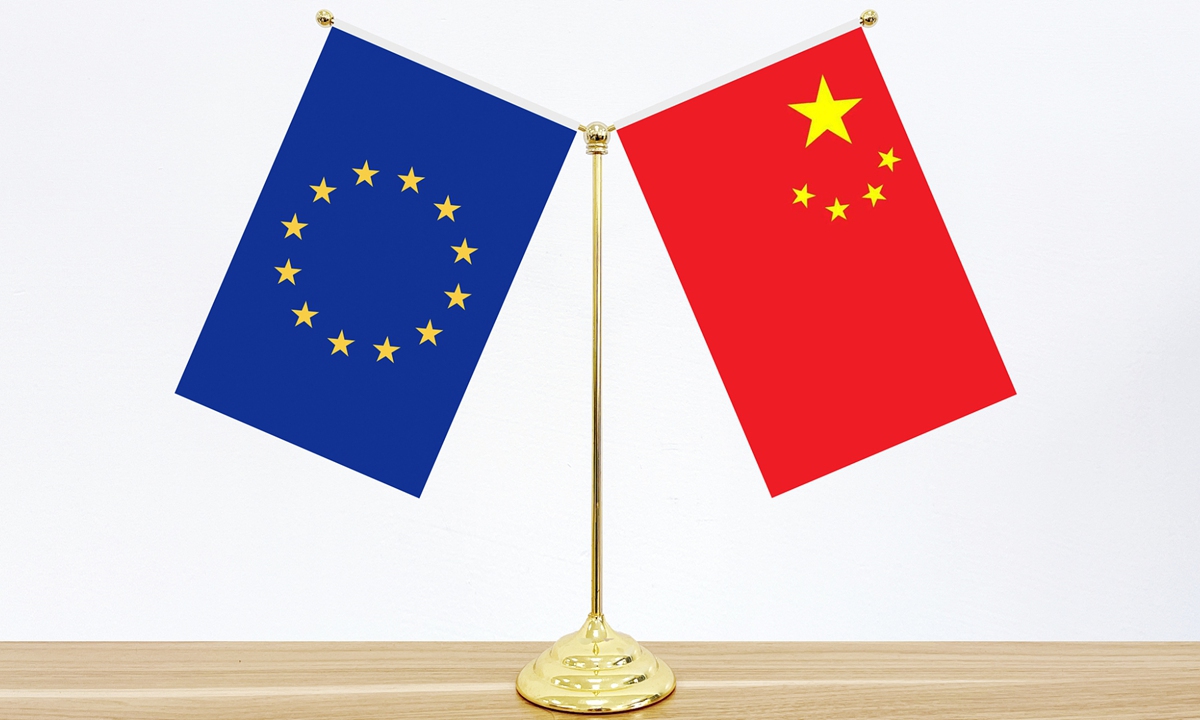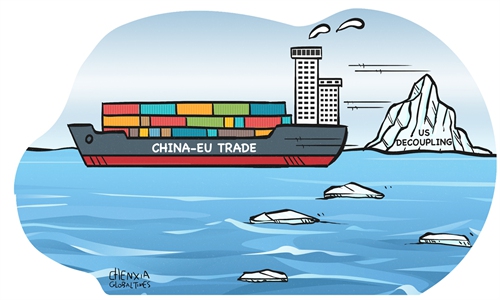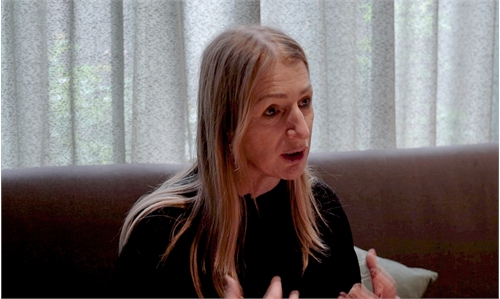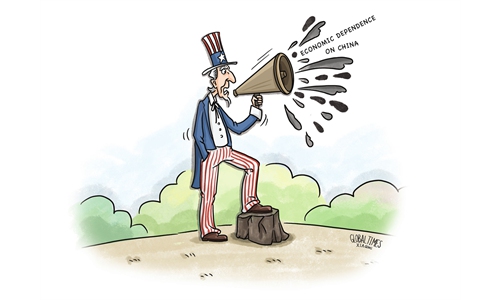Ill-intentioned hype on remarks by Chinese envoy to France won't create 'big waves' for China-EU ties: experts

China EU Photo: VCG
A debate is underway in Europe on how to deal with China and strike a balance between EU-China relations and EU-US partnership, before the European Council meeting in June where European leaders will put EU's China policy on the agenda.
Some unfriendly European officials and Western media are hyping up latest remarks by the Chinese envoy to France, in an attempt to add bargain chip in the debate. However, experts believe those hypes won't "make big waves" in China-EU relations as Chinese foreign ministry has stressed that China's position on a range of issues including on the Ukraine crisis and the status of the former Soviet states, remains consistent and those who misrepresent China's position and attempt to sow discord between China and other countries won't succeed.
The Chinese Foreign Ministry said on Monday that China respects the status of the former Soviet republics as sovereign countries after the Soviet Union's dissolution. As to the Ukraine issue, China's position is clear and consistent. China will continue to work with the international community to make its own contribution to facilitating a political settlement of the Ukraine crisis, the ministry said.
The Chinese Embassy in France also issued a statement late Monday night saying that the envoy's comments "were not a manifestation of the policies but an expression of personal views during a televised debate, which should not be subject to over-interpretation." China's stance on relevant matters has not changed, the embassy said.
"European countries should understand China's position, but we can't exclude a possibility that some people will continue using it to sabotage China-EU relations," Sun Keqin, a research fellow at the China Institutes of Contemporary International Relations, told the Global Times on Tuesday.
Europe is in a debate about its relations with China as French President Emmanuel Macron's call for strategic autonomy and insistence on the region not to become a "vassal" of the US on the Taiwan question led to many repercussions not only in the region but also across the Atlantic, making some pro-US and anti-China forces highly nervous, experts noted.
Amid the growing complicated sentiment, some European officials and lawmakers adopted much tougher rhetoric toward China-related topics, making "some small things" a big deal and distorting China's position on matters such as the Ukraine crisis regardless of China's official stance, they said.
Yet not all European countries and officials reacted to the matter in the same way. "Some countries like Lithuania that have frictions with China previously might react much more strongly while the EU policymakers remain restrained," Cui Hongjian, director of the Department of European Studies at the China Institute of International Studies, told the Global Times on Tuesday.
"It also indicates a major characteristic of the China-EU relations: despite some noises and negative factors, the EU, at the policymaking level, is inclined to stabilize the ties with China, as for major European countries and institutions, the relations with China are highly important and it should remain cautious on any possible changes," Cui said.
EU's China policy in focus
European leaders are set to meet and continue discussions on China at the next Gymnich meeting in May in Stockholm and are preparing a position paper updating and recalibrating EU's strategy toward China as it was defined in 2019, the EU's foreign policy chief Josep Borrell said after the Foreign Affairs Council meeting on Monday.
European Council President Charles Michel also said in a tweet on Monday that "EU-China policy will be on the agenda of our European council in June."
How to view the China-EU relations and the EU-US relations dominates in a wide debate triggered by Macron's comments, some experts said.
"Europe is now engulfed in the Ukraine crisis and it has to rely on the US on security issues but many European countries understand that the US' alliance only serves its own interests and hegemony," Sun said.
The Central and Eastern European countries, out of Russia-phobia for historical reasons, actively take a pro-US position. However, many Europeans understand the US' alliance policy mainly serves its own interests and Europe has to seek strategic autonomy while cooperating with the US, Sun said.
While some Western media see EU's division over China deepen, some Chinese experts believe that the upcoming position paper will set a main tone for the development of the EU-China relations while seeking balance among issues of concern.
During a debate of the Foreign Affairs Council on China in October 2022, European leaders considered China as "a partner with whom the EU must engage, a tough competitor, and a systemic rival." And there is full support among EU member states to continue engagement on issues of interest to the EU while avoiding turning dependence into vulnerability.
On Monday, Borrell stressed that global challenges cannot be solved without China, saying that the EU wanted to work with China to combat climate change.
"Different from the previous debate, current debate happens when there have been a series of high-level interactions between China and Europe, which will help Europe shape a more balanced approach toward China, for example, by excluding 'decoupling' rhetoric," Cui said.
There are some topics influencing the debate, including China's position on the Ukraine crisis, the Taiwan question and China-US relations, the expert noted.
Borrell's calls for European navies to patrol the Taiwan Straits caused huge controversy as some Chinese experts considered those comments "extremely dangerous" and a "provocation."
"In terms of China policy, although Atlanticists and China hardliners advocate a tougher stance toward China, the European people clearly understand that if they completely confront China, they will lose the autonomy and become a true vassal of the US," Sun told the Global Times, noting that seeking a balance between EU-China relations and EU-US ties should be their major consideration.




